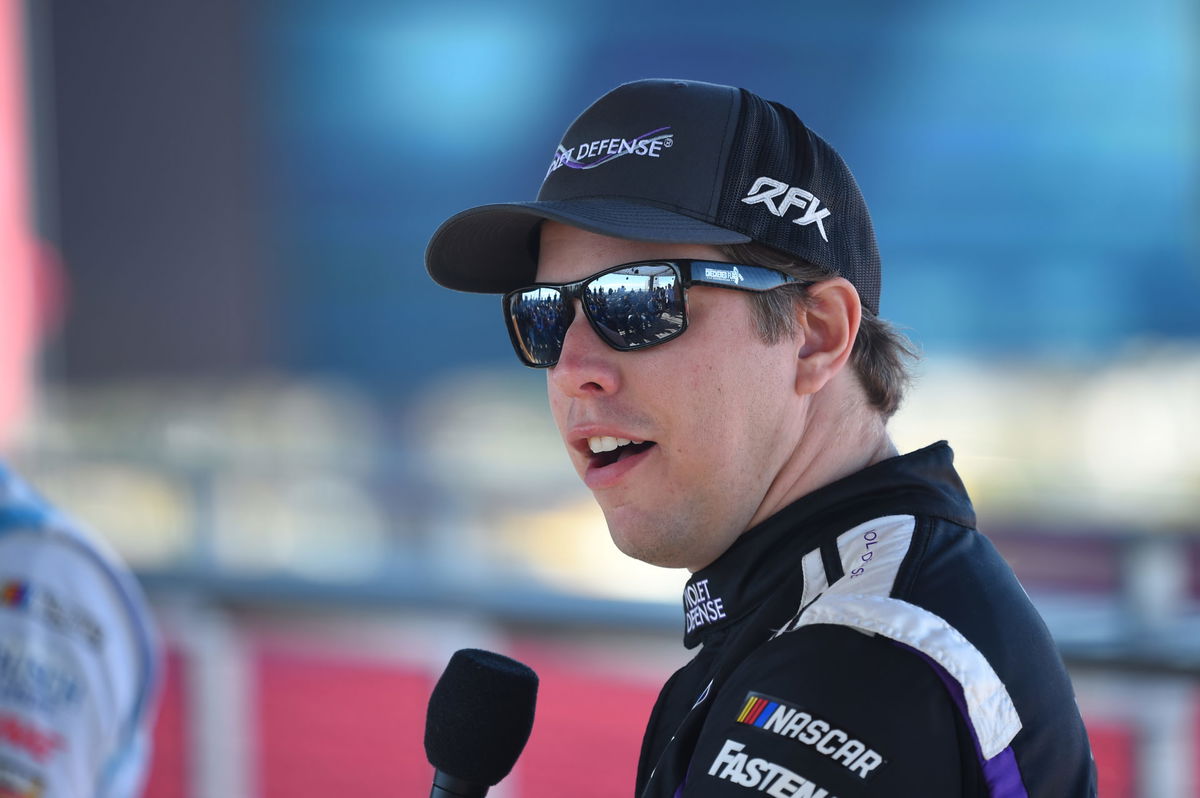
Getty
LOS ANGELES, CA – FEBRUARY 05: Brad Keselowski (#6 Roush Fenway Keselowski Racing Violet Defense Ford) answers questions for a media press conference during the Busch Light Clash at The Coliseum NASCAR Cup Series race on February 05, 2022, at the Los Angeles Memorial Coliseum in Los Angeles, CA. (Photo by Chris Williams/Icon Sportswire via Getty Images)

Getty
LOS ANGELES, CA – FEBRUARY 05: Brad Keselowski (#6 Roush Fenway Keselowski Racing Violet Defense Ford) answers questions for a media press conference during the Busch Light Clash at The Coliseum NASCAR Cup Series race on February 05, 2022, at the Los Angeles Memorial Coliseum in Los Angeles, CA. (Photo by Chris Williams/Icon Sportswire via Getty Images)
NASCAR and Team Alliance are still in a stalemate to extend the charter agreement, which ends in 2024. While the teams are demanding a permanent charter, a better revenue split, and a say in the decision-making process, NASCAR has held firm on its stand. None of the parties are yet to loosen their stance despite a better media rights deal worth $7.7 billion looking to inject more financial muscle into the sport.
Watch What’s Trending Now!
In theory, it does look like NASCAR is offering a better deal to the teams. This would then allow them to spend on talent and building their racing project rather than relying on sponsorships. Although this might be seen as a welcome change, Brad Keselowski isn’t too convinced that it would change the dynamics of the sport and their reliance on sponsorships.
Brad Keselowski believes sponsorship to be a vital component of revenue generation
Unlike other major stick-and-ball sports, NASCAR has a rather unique way of generating revenue. While TV and streaming service revenues have not entered the frame, the good old way of ‘Win on Sunday, Sell on Monday’ is still relevant in the modern era of NASCAR racing. NASCAR, for the most part, is unwilling to share the revenue splits, but that might change with the new charter agreement.
Sharing his take on the topic, Brad Keselowski, while speaking with Bob Pockrass, opined, “If I go back in time 20 years ago, the dynamic was, as far as funding a team, 90 percent sponsorship-based. And if you take a snapshot of where we are today, maybe it’s closer to 75 sponsorship, and 25 percent purse, or outside revenue, so to speak. It appears the new charter agreement is going to get that somewhere closer to 65–35, which is a shift that can’t be understated. But the reality of that is it still doesn’t fully flip the script, so to speak. It’s just a step in the right direction.”
Being a co-owner of the team, perhaps this was a jibe at NASCAR for not moving the needle in the right direction of sharing revenue splits. 65-35 might look like a big shift in favor of the teams, but remember, most of them aren’t even making profits. Heck, NASCAR’s winningest team, Hendrick Motorsports, hasn’t been profitable for a while. So just a percentage of the revenue pool from a new TV deal won’t cut it for the teams.

USA Today via Reuters
Aug 26, 2023; Daytona Beach, Florida, USA; NASCAR Cup cars on display for fans before the Coke Zero Sugar 400 at Daytona International Speedway. Mandatory Credit: Mike Watters-USA TODAY Sports
Moreover, if we are to look at the current revenue-sharing model, Perhaps that might paint a better picture of why teams are persistent in their demands for a bigger piece of the pie from the charter deal.
Here’s how the current split works
Under the existing charter agreement, the TV revenue is split three ways. Tracks receive 65% of the revenue, 10% for NASCAR, and 25% is allocated to the teams. But there’s a catch. Unlike other major sports series where a franchise system is in place, NASCAR is still a family-owned business. And most of the racetracks are under NASCAR’s ownership, so evidently they are the ones who get more pieces from the revenue pie.
As things stand, the NASCAR teams generate somewhere between 65 and 80 percent of their earnings from sponsorship. Now you see why Brad Keselowski wasn’t impressed with the increased revenue split. Now add the costs of fielding a race car, running the race shops, and hiring the talent. So, it’s clear the teams are trying to put in all their resources in order to put on a good show every weekend. But NASCAR just won’t share its revenue with its rightful stakeholders.
With just 5 months until the end of the current charter agreement, the future of NASCAR still hangs by the thread. What’s more worrying is the fact that there have been no updates or developments regarding the renewal of the negotiation process.


